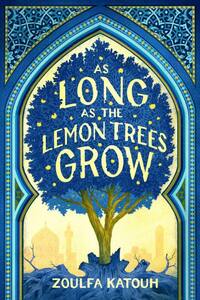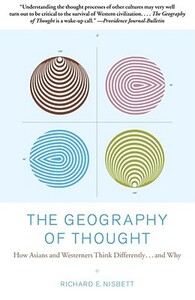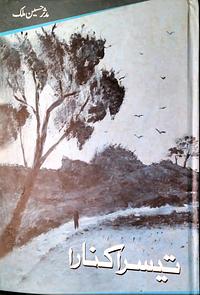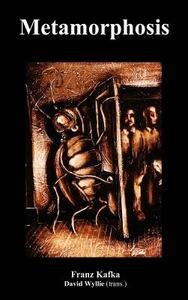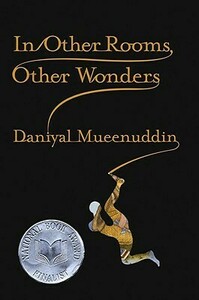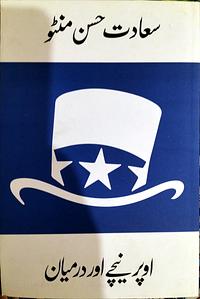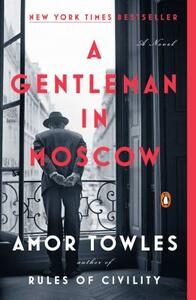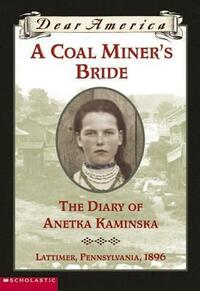Take a photo of a barcode or cover
aayjaysbookshelf's Reviews (52)
adventurous
challenging
dark
tense
fast-paced
Plot or Character Driven:
Plot
Strong character development:
Yes
Loveable characters:
Yes
Diverse cast of characters:
Yes
Flaws of characters a main focus:
No
This is a brilliant book that I am so glad to have read. Based in Karachi, and mainly revolving around Karachi Police, this book does a tremendous job at explaining the sociopolitical history, landscape and complexities of one of the most unhinged metropolitans of the world, through fiction that is actually not just fiction 😅.
A fast paced page turner that has all the qualities of a good thriller. The story zooms in and out of two different timelines that are 5 years apart and converge them to the present moment in a very satisfying climax that had me engaged and entertained throughout. Great writing, great characters and a lovely job done at drawing out the ambiguous, existing-in-the-grey nature of Karachi.
What I find THE most amusing is how the supposedly 'fiction' element of this book is so brilliantly written that to anyone who's not actually lived in Karachi or a similar metropolis, it would come off as a thrilling, unreal story only. Yet it's only the Karachiites, the ones that have actually LIVED the lives and times told in the book, who would understand how it's all NOT fiction actually. The wit, sarcasm and satire is so refreshing.
If you're interested in understanding why Karachi is the enigma that it is, why there's no exact right or wrong in this city, and why they say this city is not for the weak hearteds, this is the book for you.
A fast paced page turner that has all the qualities of a good thriller. The story zooms in and out of two different timelines that are 5 years apart and converge them to the present moment in a very satisfying climax that had me engaged and entertained throughout. Great writing, great characters and a lovely job done at drawing out the ambiguous, existing-in-the-grey nature of Karachi.
What I find THE most amusing is how the supposedly 'fiction' element of this book is so brilliantly written that to anyone who's not actually lived in Karachi or a similar metropolis, it would come off as a thrilling, unreal story only. Yet it's only the Karachiites, the ones that have actually LIVED the lives and times told in the book, who would understand how it's all NOT fiction actually. The wit, sarcasm and satire is so refreshing.
If you're interested in understanding why Karachi is the enigma that it is, why there's no exact right or wrong in this city, and why they say this city is not for the weak hearteds, this is the book for you.
emotional
informative
lighthearted
reflective
slow-paced
I picked up this book with an expectation to have an account of old days Lahore and although it did not quite come up to that expectation, it still portrayed the Lahore of early 1900s in an elaborate way.
This book is more of an emotional/sentimental recount of the author's early life in Lahore, so it, of course, has that rose tinted view to it that one finds in nostalgic writings. Almost everything is painted in a lovely, positive light, which at first, was annoying, to be fair, but then I made peace with it with the fact that findings historical facts and nuances in an autobiography sort of book is not wise either.
It's written in an essay-like manner which gets very tedious to read for the first half of the book, but then it picks up pace later on, and has a good ring to it. It did a nice job with describing the Lahore of pre-partition from the lens of a teenage/adolescent boy, and if you read it with only that in mind, you'll be able to enjoy the book.
This book is more of an emotional/sentimental recount of the author's early life in Lahore, so it, of course, has that rose tinted view to it that one finds in nostalgic writings. Almost everything is painted in a lovely, positive light, which at first, was annoying, to be fair, but then I made peace with it with the fact that findings historical facts and nuances in an autobiography sort of book is not wise either.
It's written in an essay-like manner which gets very tedious to read for the first half of the book, but then it picks up pace later on, and has a good ring to it. It did a nice job with describing the Lahore of pre-partition from the lens of a teenage/adolescent boy, and if you read it with only that in mind, you'll be able to enjoy the book.
challenging
dark
emotional
hopeful
reflective
sad
tense
slow-paced
Plot or Character Driven:
A mix
Strong character development:
Yes
Loveable characters:
Yes
Diverse cast of characters:
Yes
Flaws of characters a main focus:
No
A beautifully poignant book that had my heart broken at a lot of points and also soothed in a way I did not expect. As Long As The Lemon Trees Grow is an ode to Syrian revolution, told through a close-up story of Salama, a teenager studying pharmacy who is forced to become a surgeon and bread winner of her family under the dire circumstances as her city becomes the centre of conflict between Syrian government and rebellion forces. We've all heard about Syria growing up, the news enlisting the number of people affected, but rarely have we heard or seen actual personal stories, stories of real humans, and this book captures that very well. The pace is quite slow, and maybe intentionally kept so to highlight how days feel like years during war. The characters are drawn really well, their plight and stories reflected well, the plot moves slowly but steadily, the storyline is kept engaging, and the prose is very impactful. I specially liked the portrayal of the mental illness/stress of people living under a tyrannical rule, and my heart moved with the Syrian spirit at quite a few places. The climax, specially the last final twist was really well delivered. Overall, a great read. I might not pick this up anytime soon, but that's because of how heavy it is, and the very reason why more people should read it.
informative
reflective
slow-paced
I had this book on my shelf since 1st Jan 2024 and I finally started reading it on 1st Jan 2025. Took me two whole months to finish reading it, mainly owing to its subject, but also because of the writing.
The book does a pretty good job at exploring how our thoughts and ideas are actually very influenced by where we come from - a fact that is not unknown, but hasn't been as thoroughly explored either. Nisbett, being a psychologist and a social scientist, complemented his ideas by real, scientific data which is the main premise of the book.
Although it may seem a bit generalized; the terms of Easterners and Westerners, and not exactly capture the diversity of the human cultures, Nisbett does mention that he has used the terms in broad context only, and how the findings cannot be applied to all groups a 100%.
For me, the most interesting part of the book was the start where the historical context is explained and how it implies to our different ways of thinking now. The difference in attitude between Greeks (Westerners) and Chinese (Easterners) and how that was influenced by the 'geography' they were from, and how THAT set the tone for the world for centuries to come, is really insightful. I think I was looking for more of such anecdotes in the book ahead, maybe some connection of geography with genetics and how that influences our thinking, but couldn't find much to my dismay.
The book is really insightful, packed with loads and loads of study references, but that also makes it a bit too dry and academic on the writing part, and I couldn't keep up with reading it for a long time in one go. Probably the main reason why it took me so long to finish it. The ideas presented are amazing, but the writing lacks the creative element in it which would have definitely made this book unputdownable if done rightly. Nonetheless, a good read. Anyone wishing to explore anthropology, sociology and psychology in cultural context should really give it a go.
The book does a pretty good job at exploring how our thoughts and ideas are actually very influenced by where we come from - a fact that is not unknown, but hasn't been as thoroughly explored either. Nisbett, being a psychologist and a social scientist, complemented his ideas by real, scientific data which is the main premise of the book.
Although it may seem a bit generalized; the terms of Easterners and Westerners, and not exactly capture the diversity of the human cultures, Nisbett does mention that he has used the terms in broad context only, and how the findings cannot be applied to all groups a 100%.
For me, the most interesting part of the book was the start where the historical context is explained and how it implies to our different ways of thinking now. The difference in attitude between Greeks (Westerners) and Chinese (Easterners) and how that was influenced by the 'geography' they were from, and how THAT set the tone for the world for centuries to come, is really insightful. I think I was looking for more of such anecdotes in the book ahead, maybe some connection of geography with genetics and how that influences our thinking, but couldn't find much to my dismay.
The book is really insightful, packed with loads and loads of study references, but that also makes it a bit too dry and academic on the writing part, and I couldn't keep up with reading it for a long time in one go. Probably the main reason why it took me so long to finish it. The ideas presented are amazing, but the writing lacks the creative element in it which would have definitely made this book unputdownable if done rightly. Nonetheless, a good read. Anyone wishing to explore anthropology, sociology and psychology in cultural context should really give it a go.
emotional
mysterious
sad
medium-paced
Plot or Character Driven:
N/A
Strong character development:
N/A
Loveable characters:
N/A
Diverse cast of characters:
N/A
Flaws of characters a main focus:
N/A
مدثر حسین ملک کے افسانوں کا مجموعہ ، "تیسرا کنارا" تصوف، نفسیات ، فلسفہ اور انسانی فطرت جیسے موضوعات پہ مشتمل ایک کتاب ہے جو 2017 میں شائع ہوئی۔ مصنف کی تخیلاتی فطرت کا ان کے کام پہ گہرا اثر اس کتاب میں نظر آتا ہے، جس میں استعاروں کا بےدریغ استعمال کیا گیا ہے، بلکہ یہ کہنا غلط نہ ہوگا کہ پوری کتاب ہی استعاروں سے سجائی ہوئی ہے۔ اکثر جگہوں پہ حقیقت اور تصور کی لکیر ایک دوسرے میں ملتی ہوئی محسوس ہوئی ، جو میرے خیال میں مصنف نے ارادی طور پہ کیا ہے۔ چند افسانوں میں مابعدالطبیعات (metaphysics) کے موضوعات پہ بھی طبع آزمائی کی گئی ہے، جو مجھے دور حاضر کے اردو کے کام میں اچھی لگی۔
اگرچہ یہ ایک نثری کتاب ہے ، لیکن استعاروں کے استعمال اور افسانوی سانچے نے اسے شاعرانہ شکل زیادہ دی ہوئی ہے، جہاں کرداد کم اور خیالات کا مکالمہ زیادہ ہے۔ تخلیقی اعتبار سے کافی مناسب کام ہے، لیکن چونکہ مجھے خیالات و کردار کا توازن زیادہ پسند ہے، اس لیے مجھے ایک وقت کے بعد اس یکسانیت سے تھوڑی الجھن ہونے لگی۔ کچھ جگہوں پہ ایسا بھی محسوس ہوا کہ بات نامکمل رہ گئی ، اور کچھ جگہوں پہ باتوں کا ربط نہ بن پایا۔ بہرحال ، ایک اچھی کتاب، جو وقت اور ورق گردانے کے لیے موزوں ہے۔
اگرچہ یہ ایک نثری کتاب ہے ، لیکن استعاروں کے استعمال اور افسانوی سانچے نے اسے شاعرانہ شکل زیادہ دی ہوئی ہے، جہاں کرداد کم اور خیالات کا مکالمہ زیادہ ہے۔ تخلیقی اعتبار سے کافی مناسب کام ہے، لیکن چونکہ مجھے خیالات و کردار کا توازن زیادہ پسند ہے، اس لیے مجھے ایک وقت کے بعد اس یکسانیت سے تھوڑی الجھن ہونے لگی۔ کچھ جگہوں پہ ایسا بھی محسوس ہوا کہ بات نامکمل رہ گئی ، اور کچھ جگہوں پہ باتوں کا ربط نہ بن پایا۔ بہرحال ، ایک اچھی کتاب، جو وقت اور ورق گردانے کے لیے موزوں ہے۔
challenging
dark
mysterious
sad
tense
slow-paced
Plot or Character Driven:
A mix
Strong character development:
Complicated
Loveable characters:
No
Diverse cast of characters:
No
Flaws of characters a main focus:
Yes
This is the first Kafka book I read. As expected, it's a pretty sad book, of the fiction category. Although it's a straightforward story, in which the protagonist, Gregor Samsa wakes up one day to find himself transformed into a giant bug and the story revolves around his life from there onwards, I looked it up on SparkNotes side by side and that helped. The exploration of one's relation with his family and it being connected to one's financial capability is done well in the book, although a bit too much on the gloomy side, which is understandable coming from Kafka. It's a sad story of a man who has lived his life away in service of his family and do not feel worthwhile on his own, which reflects in his metamorphosis into a giant bug and the changed attitude of his family towards him, which is concern and pity at the start, and which morphs into contempt and disgust to the point of indifference towards the end, and this gradual change of interrelations and emotions is very artfully done by Kafka, perhaps my most favorite element of this book. I am sure a lot of the meaning must have been lost in the translations (it's a German book originally) and I do like the creative element of explaining relations, money and expectations through a story like this, I still don't see why this book is counted as amongst the greatest works of literature. Or perhaps, I don't have the appetite yet for writers like Kafka, Virginia Woolf or Manto, and need to read them through more experienced eyes and mature lenses to understand the hype about them. Overall, a fine read. Might pick it up a few years later to see how my perception about it has metamorphosised.
dark
emotional
reflective
sad
medium-paced
Plot or Character Driven:
A mix
Strong character development:
No
Loveable characters:
Complicated
Diverse cast of characters:
Yes
Flaws of characters a main focus:
Complicated
A contemporary fiction novel which seems divided into different chapters, but is actually a collection of 8 short stories which are separate from each other in their story but tied together by the common thread of a Punjabi feudal lord (K.K Harouni) who is the denominator in all these stories. 'In Other Rooms, Other Wonders' was reflective of its name in its writing; it felt like peering into different rooms in the same house at different times, the stories quite different, yet somehow connected to each other. Regarded as an outlook in the sociological structure of a modern day Pakistani society, this book did a good job with describing the characters and the places vividly, making it really easy to imagine it all. The stories are of different factions of the society, but mainly focusing on the stark difference between the upper and lower classes, with the middle class appearing only momentarily. From stories of maids and servants to feudal lords and elites, the book sheds light on our general society through specific characters, which I think is quite good writing.
What I particularly liked about the writing was the poignant way of describing or hinting at the many nuances and micro behaviours that go unnoticed by many but leave an impact nonetheless. Also, the way the stories are of different times and characters yet gravitating back to the common denominator (their relation to K.K Harouni) subtly is an example of a creative writing. Although I find it perplexing that this (supposedly) main character is not given the due main character attention.
The stories built up nicely but end abruptly, which I found frustrating. Moreover, the sense of time is a bit confusing since it sometimes describe the 70s and 80s and sometimes zoom into the 2000s. It's heavily Punjabi centered, though, so I would also not call it a true or whole representation of a Pakistani society, but of a faction of it only (Punjabi) which, albeit it being a large one, is not representative of the diverse Pakistani society. A nice read overall.
What I particularly liked about the writing was the poignant way of describing or hinting at the many nuances and micro behaviours that go unnoticed by many but leave an impact nonetheless. Also, the way the stories are of different times and characters yet gravitating back to the common denominator (their relation to K.K Harouni) subtly is an example of a creative writing. Although I find it perplexing that this (supposedly) main character is not given the due main character attention.
The stories built up nicely but end abruptly, which I found frustrating. Moreover, the sense of time is a bit confusing since it sometimes describe the 70s and 80s and sometimes zoom into the 2000s. It's heavily Punjabi centered, though, so I would also not call it a true or whole representation of a Pakistani society, but of a faction of it only (Punjabi) which, albeit it being a large one, is not representative of the diverse Pakistani society. A nice read overall.
challenging
dark
sad
tense
medium-paced
Plot or Character Driven:
N/A
Strong character development:
N/A
Loveable characters:
N/A
Diverse cast of characters:
N/A
Flaws of characters a main focus:
N/A
منٹو کے مضامین اور چند افسانوں کا مجموعہ ، 'اوپر، نیچے اور درمیان ' میرا منٹو کی تحاریر سے پہلا واسطہ نہیں ہے۔ منٹو کی تحریروں کی خاص بات ان کا بےدھڑک انداز ہے، جو بغیر کسی بناوٹ کی سماجی پیچیدگیوں کو پرت بہ پرت کھولتا ہے۔ اکثر ایسا محسوس ہوتا ہے کہ لکھائی کم اور کلام زیادہ ہے۔
اس کے باوجود ، مجھے منٹو کی لکھائی کچھ خاص سمجھ نہیں آتی ۔ کیٔ بار یہ شبہ ہوتا ہی کہ تحریر کا کویٔ رخ، کؤی راستہ نہیں ہے، اور نہ ہی کوئی اصل شروعات یا اختتام ۔شاید یہ ہی منٹو کا انداز ہے یا شاید اس کی وجہ میرا منٹو کو ازخود سمجھنے کی کوشش ہے، اور منٹو کے کام کو ان کے صحیح معنوں میں سمجھنے کے لیے ایک استاد کی ضرورت ہو۔
بہرحال ، سماجی بناوٹوں کو اگر واقعی میں کسی نے کھول کے پیش کیا ہے تو وہ منٹو ہیں، اور ان کی یہ خاصیت اس مضامین کے مجموعے میں بھی موجود ہے۔ تقسیمِ ہند کے آس پاس کے دور میں لکھا گیا یہ کام نہ صرف برصغیر بلکہ 1940-1950 کی ساری دنیا کا ایک مطالعہ ہے، جس میں بالخصوص امریکہ ، روس اور عظیم جنگوں کے دنیا پہ اثرات کو منٹو نے اپنے تیکھے لہجے میں بیان کیا ہے۔ سوشلزم کے موضوعات پہ بھی طنز کے پیرائے میں بات کی گئی ہے۔ اس لحاظ سے اس کتاب کو منٹو کے سماجی نظریات کا عکس کہنا غلط نہیں ہوگا ۔
اس کے باوجود ، مجھے منٹو کی لکھائی کچھ خاص سمجھ نہیں آتی ۔ کیٔ بار یہ شبہ ہوتا ہی کہ تحریر کا کویٔ رخ، کؤی راستہ نہیں ہے، اور نہ ہی کوئی اصل شروعات یا اختتام ۔شاید یہ ہی منٹو کا انداز ہے یا شاید اس کی وجہ میرا منٹو کو ازخود سمجھنے کی کوشش ہے، اور منٹو کے کام کو ان کے صحیح معنوں میں سمجھنے کے لیے ایک استاد کی ضرورت ہو۔
بہرحال ، سماجی بناوٹوں کو اگر واقعی میں کسی نے کھول کے پیش کیا ہے تو وہ منٹو ہیں، اور ان کی یہ خاصیت اس مضامین کے مجموعے میں بھی موجود ہے۔ تقسیمِ ہند کے آس پاس کے دور میں لکھا گیا یہ کام نہ صرف برصغیر بلکہ 1940-1950 کی ساری دنیا کا ایک مطالعہ ہے، جس میں بالخصوص امریکہ ، روس اور عظیم جنگوں کے دنیا پہ اثرات کو منٹو نے اپنے تیکھے لہجے میں بیان کیا ہے۔ سوشلزم کے موضوعات پہ بھی طنز کے پیرائے میں بات کی گئی ہے۔ اس لحاظ سے اس کتاب کو منٹو کے سماجی نظریات کا عکس کہنا غلط نہیں ہوگا ۔
adventurous
challenging
emotional
funny
informative
inspiring
reflective
sad
slow-paced
Plot or Character Driven:
Plot
Strong character development:
Yes
Loveable characters:
Yes
Diverse cast of characters:
Yes
Flaws of characters a main focus:
Complicated
I had heard great things about this book so I picked it up with a lot of expectations. Truth be told, I struggled to pick up pace at the beginning and the plot felt a bit too dense for me to follow, until SparkNotes came to the rescue and the novel reached the point where Nina comes in and after that it was a good read for me.
A Gentleman in Moscow is a hitorical fiction novel; a story of a Russian aristocrat, Count Alexander Rostov, who is detained for life in a hotel in Moscow after the Bolsheviks revolution in early 1900s. As such, the whole novel is based in a single place mostly (Hotel Metropol), with accounts of other places through memories and recollections. An insight into Soviet Russia, and exploration of Russian culture, it follows the life of Count and those around him in the hotel, with the Russian history in the background running side by side. There are a ton of literary references in the novel, Russian specially, which might be hard to understand if you don't have prior idea about them; but if you do, it would be an absolute delight to read. Themes of individualism vs communism are well explored in the novel, and what makes it stunning is the exploration of these concepts through a heartwarming story and not academically only. I specially liked how all the characters were given their due arc, place and closure in this novel, regardless of them being the main character or the supporting one. The writing is lovely, though the plot moves at too slow a pace, oftentimes feeling like the story isn't moving at all - which might be intentional by the writer, as a nod to the Count's detainment and his staying in one place for most of his life. It made me laugh at quite a few places, and shed a tear at some, and reaffirmed the point about human connections being amongst the most treasured assets for one. Delightful dialogues, philosophical annotations, heartfelt conversations and wise words are sprinkled throughout the story, making it a lovely read if you're in for a slow one. This was my first interaction with Russian literature and it makes me want to read more of the Russian classics. A classic written in a contemporary way is how I'd define A Gentleman in Moscow. A book to be re-read years later. ❤️
A Gentleman in Moscow is a hitorical fiction novel; a story of a Russian aristocrat, Count Alexander Rostov, who is detained for life in a hotel in Moscow after the Bolsheviks revolution in early 1900s. As such, the whole novel is based in a single place mostly (Hotel Metropol), with accounts of other places through memories and recollections. An insight into Soviet Russia, and exploration of Russian culture, it follows the life of Count and those around him in the hotel, with the Russian history in the background running side by side. There are a ton of literary references in the novel, Russian specially, which might be hard to understand if you don't have prior idea about them; but if you do, it would be an absolute delight to read. Themes of individualism vs communism are well explored in the novel, and what makes it stunning is the exploration of these concepts through a heartwarming story and not academically only. I specially liked how all the characters were given their due arc, place and closure in this novel, regardless of them being the main character or the supporting one. The writing is lovely, though the plot moves at too slow a pace, oftentimes feeling like the story isn't moving at all - which might be intentional by the writer, as a nod to the Count's detainment and his staying in one place for most of his life. It made me laugh at quite a few places, and shed a tear at some, and reaffirmed the point about human connections being amongst the most treasured assets for one. Delightful dialogues, philosophical annotations, heartfelt conversations and wise words are sprinkled throughout the story, making it a lovely read if you're in for a slow one. This was my first interaction with Russian literature and it makes me want to read more of the Russian classics. A classic written in a contemporary way is how I'd define A Gentleman in Moscow. A book to be re-read years later. ❤️
emotional
hopeful
informative
lighthearted
reflective
sad
medium-paced
Plot or Character Driven:
A mix
Strong character development:
Yes
Loveable characters:
Yes
Diverse cast of characters:
Yes
Flaws of characters a main focus:
Complicated
This is a historical fiction novel in the young adults category, which I happened to find randomly at a bookshop. Not knowing the context of this series (Dear America), I started the book with a blank slate, and I wasn't disappointed.
Based in Poland and America of late 1800s, The Diary of Anetka Kamnisokva is a story of a young girl who migrates from Poland to America against her will and forced by circumstances. The book does a really good job at the character sketching of the characters, and specially the lead, Anetka, whose life story transforms from that of a 13year old child to a 13 year old woman, all in a span of just an year. The story is sweet, the writing is easy, and the narrative flows easily. The book revolves around the Polish history, the Czars, the industrial revolution of America, and mainly the coal mining industry and the Lattimer massacre of 1897 which marked the beginning of a new age in America, and running alongside is the story of Anetka and her family, who find their own ways of life amidst the discrimination, racism and contempt against them as immigrants in America of late 1800s.
The story is written in a journal entry kind of manner, and it is, quite actually, the documentation of history through the diary of a young girl. I particularly liked the very subtle yet poignant shift in character of Anetka through the story, as she morphs from a child in her hometown to one forced by fate to become a woman in a foreign country, yet continues to preserve her fieryness and nerves. The exploration of Polish history is lovely, and a side I had never read about before. The description of coal mining industry, the exploitation of its workers and the plight of their families is well explained as well.
It has a continuity to its prose that makes it un-put-downable, and the sweetness of the characters tugs at the heart as you near the end. The only thing I felt could have been better is the end which seems a little rushed to me after the slow buildup throughout the book, and the climax of the novel (The Lattimer massacre) lacked the punch you expect in the climax. The book is predicable, but in a nice sort of way. The copy that I have also has real pictures from that time, and the historical context added which makes it more contextual. Overall, a very nice read.
Based in Poland and America of late 1800s, The Diary of Anetka Kamnisokva is a story of a young girl who migrates from Poland to America against her will and forced by circumstances. The book does a really good job at the character sketching of the characters, and specially the lead, Anetka, whose life story transforms from that of a 13year old child to a 13 year old woman, all in a span of just an year. The story is sweet, the writing is easy, and the narrative flows easily. The book revolves around the Polish history, the Czars, the industrial revolution of America, and mainly the coal mining industry and the Lattimer massacre of 1897 which marked the beginning of a new age in America, and running alongside is the story of Anetka and her family, who find their own ways of life amidst the discrimination, racism and contempt against them as immigrants in America of late 1800s.
The story is written in a journal entry kind of manner, and it is, quite actually, the documentation of history through the diary of a young girl. I particularly liked the very subtle yet poignant shift in character of Anetka through the story, as she morphs from a child in her hometown to one forced by fate to become a woman in a foreign country, yet continues to preserve her fieryness and nerves. The exploration of Polish history is lovely, and a side I had never read about before. The description of coal mining industry, the exploitation of its workers and the plight of their families is well explained as well.
It has a continuity to its prose that makes it un-put-downable, and the sweetness of the characters tugs at the heart as you near the end. The only thing I felt could have been better is the end which seems a little rushed to me after the slow buildup throughout the book, and the climax of the novel (The Lattimer massacre) lacked the punch you expect in the climax. The book is predicable, but in a nice sort of way. The copy that I have also has real pictures from that time, and the historical context added which makes it more contextual. Overall, a very nice read.


